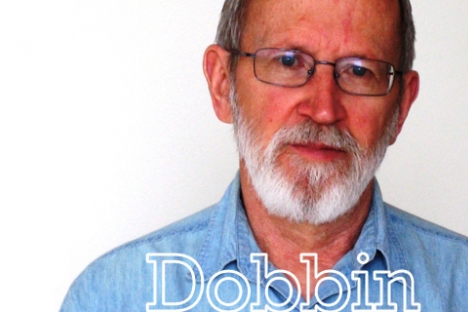Can You Imagine? Toppling the Fossil Fuel Empire
“We can’t solve problems by using the same kind of thinking we used when we created them.”–Albert Einstein
As the world struggles with how to deal with the slow motion apocalypse of global climate change it becomes more and more apparent that we are trapped in “the kind of thinking” that got us here. While I don’t want to wear out Einstein’s quotability his other little piece of wisdom that we need to keep top of mind is this:
“Imagination is more important than knowledge. For knowledge is limited to all we now know and understand, while imagination embraces the entire world, and all there ever will be to know and understand.”
Our failure of imagination regarding the ever-increasing production and use of fossil fuels will, over time, kill billions of us and irreversibly change all life on the planet. It is a failure of imagination not at a policy level but at level of civilization. It’s not a lack of knowledge – we have a staggering amount of information and analysis, a frightening compendium of what we are doing to ourselves and every other species on the planet. We keep piling it on, study after study, dire warning after dire warning, irrefutable science, actual evidence of melting ice-caps, the virtually unprecedented level of agreement on the part of science about where we are headed. Additional information is already hitting up against the principle of diminishing returns.
We have seen especially alarming predictions in the past few months. Two studies released almost simultaneously claim with a high degree of certainty that the glaciers in the western Antarctic are irreversibly melting. The first, by NASA and the University of California-Irvine, examined a group of large glaciers that collectively contain the equivalent of four feet of sea level rise. They are in “continuous and rapid retreat and there is “no [major] obstacle that would prevent the glaciers from further retreat.” They have “have passed the point of no return.”
Another study by the University of Washington came to the same conclusion and suggested the Melting of the Thwaites glacier could undermine the rest of the Antarctic ice shield holding ten to thirteen feet of sea level rise. None of this will happen soon and the maximum rise could take centuries, yet Greenland expert and glaciologist Stephen Box we have already set in motion 69 feet of sea level rise.
While some of these changes will unfold over decades and centuries a report from the US National Research Council warns of the distinct possibility of tipping points: “… the scientific community has been paying increasing attention to the possibility that at least some changes will be abrupt, perhaps crossing a threshold or ‘tipping point’ to change so quickly that there will be little time to react.” Another study examining the speed of species extinction says the extinction rate is 1000 time faster than it should be according to historical rates.
One of the major political factors preventing serious consideration of major and rapid policy changes is the sheer power of the fossil fuel industry. Unimaginable wealth translates into unimaginable power world-wide. To imagine bringing the industry to heel in a serious effort to slow climate change we have to imagine treating the industry like we eventually treated the tobacco industry: as an existential threat to human health. For decades the tobacco giants exerted so much political influence they were virtually untouchable. To the extent that this changed (it is obviously still a health scourge especially in the developing world) it changed because the notion of corporate “rights” was successfully challenged.
Multiply the impact of the tobacco industry by 1000 and you have some idea of how difficult it will be to escape the political and social conventional thinking that protects the oil “industry” from rational policy. Indeed part of that conventional thinking is seeing the giant corporations involved as just another industry. This actually serves to protect this sociopathic monster because we have rules governing industries and the individual companies that make them up. Companies are “citizens” with rights (thanks to our Charter) and they live forever. They have literally unlimited money to lobby governments for continued subsidies ($2 billion yearly from Ottawa), and tax breaks and against subsidies for renewables which could save the planet. Even though 97% of climate scientists agree about climate change, these corporations have the power trash science and sew doubts about global warming.
The energy giants are protected by rogue governments like those in Alberta and Ottawa. They are permitted to take us much of the stuff out of the ground as fast as they can ship it and sell it regardless of the global consequences. Like no other sector of the economy (except perhaps nuclear power) they are allowed to externalize hundreds of billions – possibly trillions – in costs they should be paying: air and water pollution costs; health costs; the costs associated with distorting the rest of the economy; the cost of new roads and bridges and freeways and paved-over farm land. We refuse to tax it to cover those costs and that means ridiculously low prices and little incentive to wean ourselves from its pernicious and deadly effects.
The mega-corporations that peddle fossil fuels and effectively sponsor climate change and the melting of the ice caps are not an “industry.” They are a plague. And indeed their impact is already tantamount to a plague – the fastest rate of species extinction since the end of the dinosaurs – and will over the next hundred years kill exponentially more people than all the plagues in world history combined. Speaking of dinosaurs, perhaps if we mobilized to confront the criminal negligence of the fossil fuel empire in the same way we would mobilize to divert a collision-course comet, we might achieve a realistic sense of the scale of the coming catastrophe and what needs to be done to avoid it.
And it would require us to listen to Einstein’s observation about the need to use a different kind of thinking to solve our problem. No, I mean a really different kind of thinking, the kind of big idea thinking I have referred to in earlier columns. The sooner we begin to think of the fossil fuel empire as a criminal conspiracy and not just another industrial sector, the sooner we will actually get to the point where it is not just acceptable to nationalize and control fossil fuels but necessary for the survival of all life on the planet.
How could this actually happen? What would such a course of action look like? I have no idea. That’s why imagination is more important than knowledge – and why if we don’t begin trying to imagine controlling the private fossil fuel empire it will never happen. And if I doesn’t happen we condemn our grandchildren and their grandchildren to an unimaginable dystopia. Perhaps a sign that things are moving in the right direction will be when a group of young people make a mock citizens’ arrest of the CEO of an oil company on a charge of species murder. I can hardly wait.
Murray Dobbin is a journalist, author, and activist. This column originally appeared on his blog.


























Comments